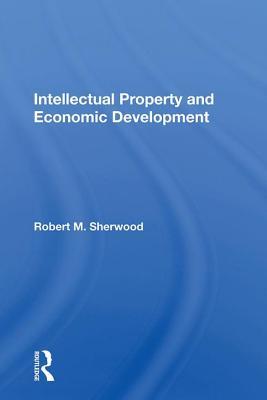Read Online Intellectual Property and Economic Development - Robert M Sherwood | PDF
Related searches:
Intellectual Property and the U.S. Economy USPTO
Intellectual Property and Economic Development
Protecting Intellectual Property and the Nation’s Economic
Intellectual Property Rights and Economic Development
Intellectual-property law - Economic and ethical issues
INTELLECTUAL PROPERTY AND ECONOMIC DEVELOPMENT: LESSONS FROM
Innovation, Intellectual Property, and Economic Growth
Innovation, Economic Development, and Intellectual Property Rights
Innovation, Intellectual Property, and Economic Growth: Greenhalgh
Innovation, Intellectual Property, and Economic Growth Princeton
Intellectual Property Key to Economic Recovery and Defeating
IP and Economics - World Intellectual Property Organization
2759 3903 4888 1133 2071 935 2158 4255 2952 34 2936 717 3064
What is intellectual property? intellectual property is a broad categorical description for the set of intangible assets owned and legally protected by a company from.
Office of the assistant secretary for planning and evaluation office of the assistant secretary for planning and evaluation.
Provides a comprehensive overview of the economic causes and effects of innovation� covers microeconomics, macroeconomics, theoretical and empirical analysis, and policy� includes up-to-date coverage of trends and policy in intellectual property and research and development.
The tightening of laws governing intellectual property has been paralleled by a steady increase in the economic and cultural importance of intellectual-property rights. The entertainment industry has long been heavily dependent on intellectual property; the fortunes of record companies and movie studios are closely tied to their ability to enforce the copyrights on their products.
Intellectual property lawyers are professionals trained and licensed to practice intellectual property law, which protects ideas and inventions from theft. Intellectual property lawyers are professionals trained in the legislation and regul.
The united states stands out as having established one of the most successful intellectual property systems in the world. Secure patents were universally acknowledged as an important factor in early economic growth. At least one part of its industrial and economic success owes to a democratization of access to intellectual property.
Intellectual property rights and economic development before considering how iprs influence economic activity and growth, consider their intended roles in the economy. Economic analysis of iprs is utilitarian, asking whether the benefits of any system outweigh its costs, both in static and dynamic terms.
Over the past 15 years, intellectual property rights (iprs)-patents, copyrights, and trademarks-have moved from an arcane area of legal analysis and a policy.
The models consistently showed a negative correlation between intellectual property protection and per capita economic growth.
The relationship between intellectual property rights and economic development has attracted a great deal of attention from economists, but their conclusions have been ambivalent and offer little definitive guidance for policy makers.
Innovation, intellectual property, and economic growth [greenhalgh, christine, rogers, mark] on amazon.
How does it contribute to the growth of firms, industries, and economies? and do intellectual property rights help or hurt innovation and growth? uniquely.
Economic literature on intellectual property protection (siebeck, 1990). Since then, the intellectual property field has seen tremendous changes—with profound implications for developing countries. Rapid advances on the technology frontier have significantly expanded the range of products and technologies that are today covered by proprietary rights.
Feb 8, 2021 a new study released today by the european patent office (epo) and the european union intellectual property office (euipo) shows that.
Protection of intellectual property is considered part of economic policy, despite the fact that economic theories concerning economic growth and development have ignored or considered it a minor.
A strategic handling of a company's intangible assets can catapult small, local businesses toward greater global recognition. You're reading entrepreneur middle east, an international franchise of entrepreneur media.
First, intellectual property presents a more serious problem of what economists call “rent seeking” than physical property does. A “rent,” in economics, is not a rental; it is an excess of revenue over cost.
When most people think of property, they imagine something tangible, such as real estate, jewelry, or computers. But intellectual property confers legal rights in intangible form.

Post Your Comments: